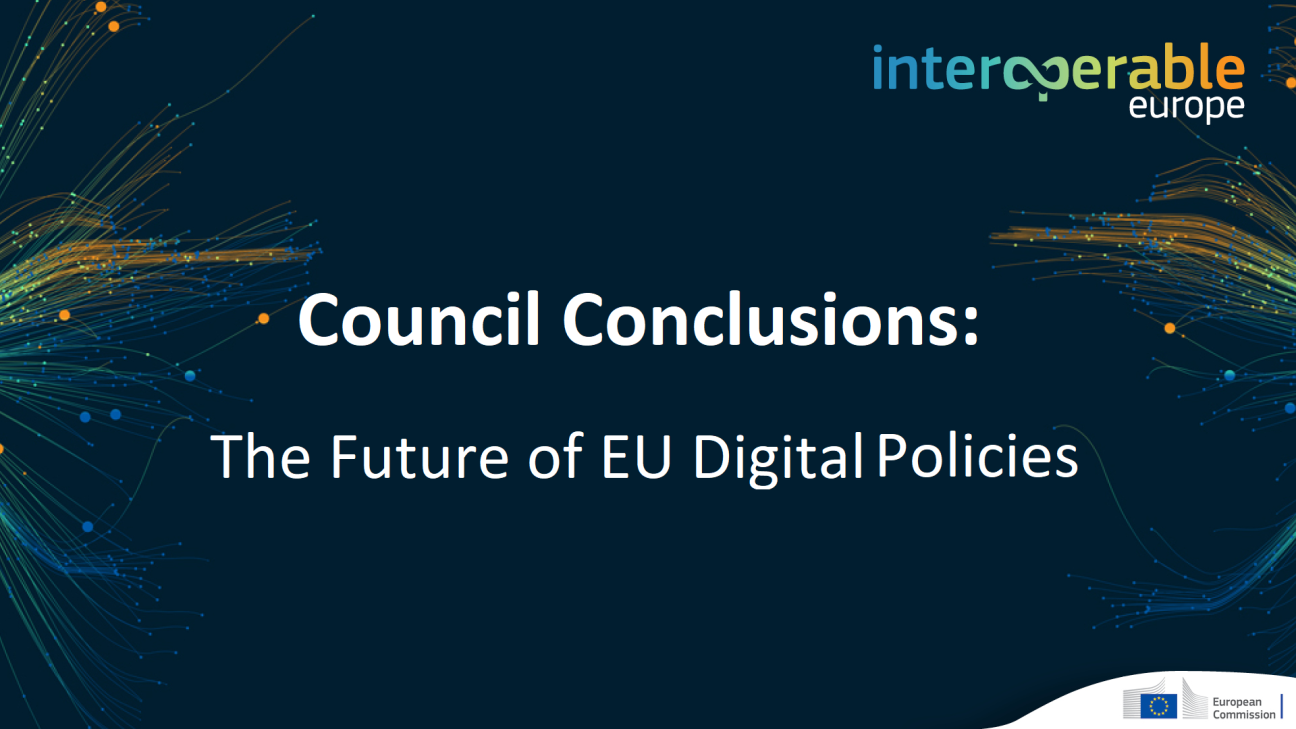EU Council renews call for interoperable and digital public sector
more news
In the newly adopted Conclusions on the Future of EU Digital Policy, the European Council ‘invites the European Commission to continue its support for the development of interoperable public digital services and the cross-border interconnection of the infrastructures of public administrations.’ This signifies again an important endorsement from EU Member States to keep prioritizing digital government and interoperability coordination among public administrations in the EU.
According to the Council, continued Commission support is necessary in these domains to ‘increase the resilience, efficiency and sustainability of public administrations’, and to further examine their technical, legal, semantic and operational barriers. It foresees a supportive role for the European Commission to overcome these barriers together with the Member States.
Regarding the digital transformation of the public sector, the Council conclusions emphasise that the future of digital government must be ‘human-centric, data-driven and AI-enabled' while embedded in ‘core principles for good governance such as interoperability.’
With many ambitious legislative initiatives adopted under the current mandate, Member States continue their aim for increased focus on digital delivery. In this context, the Commission is encouraged to put in practice digital-ready policymaking to ensure the smooth implementation of legislation and to reduce burden and costs for governments and companies.
To address the challenges faced by public administrations in their digital transformation, Member States also call on the European Commission to promote knowledge exchange between Member States and to support joint initiatives.
Finally, Member States emphasise the importance of ensuring synergies and coordination between the newly established EU boards in the digital sphere, established in the context of the Data Governance Act, the Artificial Intelligence Act, the Interoperable Europe Act and others.
No endorsement out of the blue
Other fields in which the importance of interoperability is pointed out are those domains concerning digital identity solutions and trust services, the free use of data in a secured, interoperable and trusted manner, and the development of interoperable, trusted, and secure cloud and edge services.
The newly adopted Interoperable Europe Act strengthens cross-border interoperability and cooperation in the public sector across the EU. It is a key instrument to deliver the objectives of both the Digital Decade (100% of key public services available online by 2030) and the Digital Single Market and will facilitate a more effective implementation of policies.
In the past, EU Member States have also repeatedly (and increasingly) stressed the need to strengthen European interoperability cooperation. Among others, the ministerial declarations signed in 2017 in Tallinn and 2020 in Berlin attest to this necessity.
